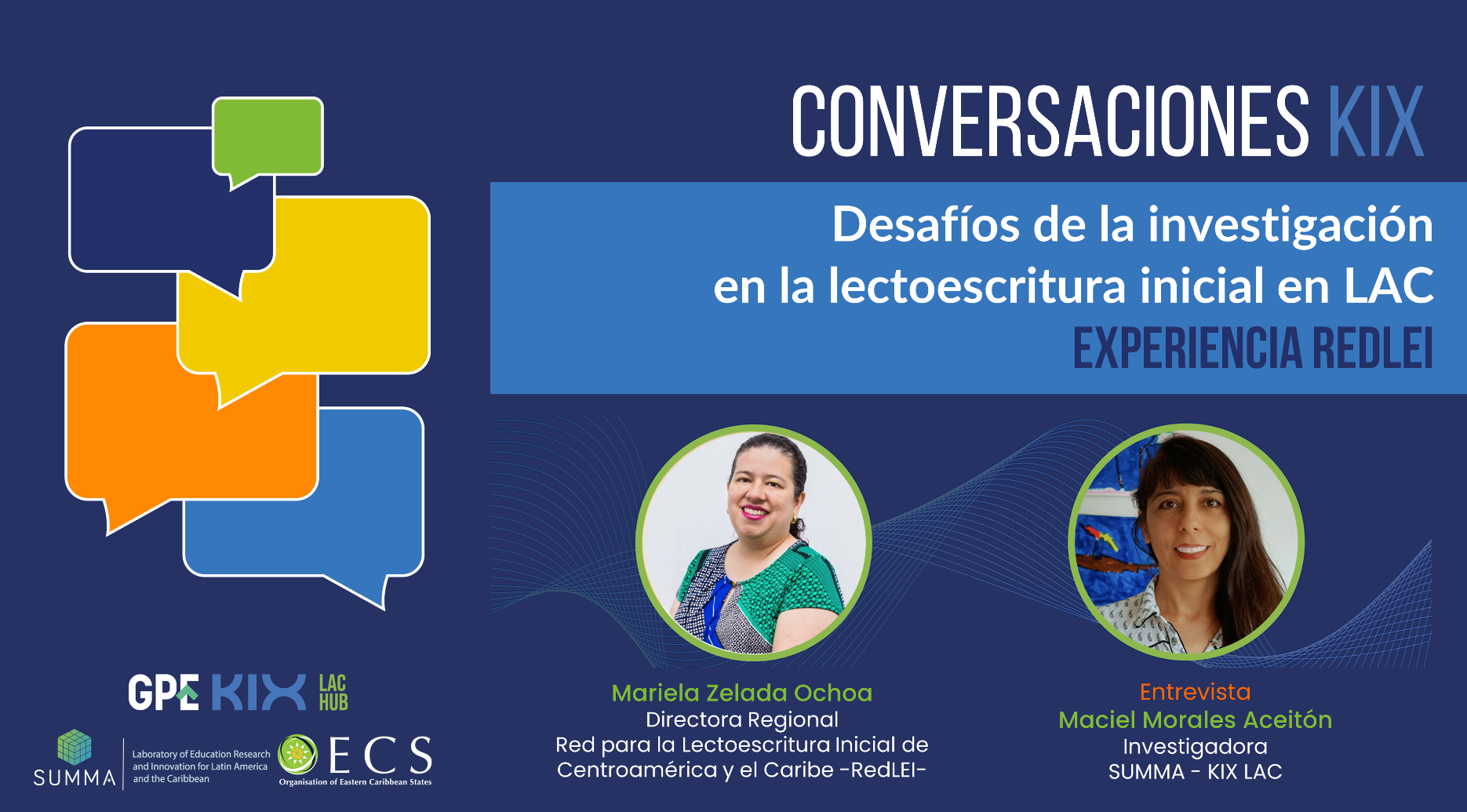
The fifteenth edition of KIX Conversations had the participation of Mariela Zelada Ocha, Regional Director of the Network for Initial Literacy of Central America and the Caribbean - RedLEI - who was interviewed by Dr. Maciel Morales Aceitón, KIX LAC researcher.
RedLEI emerged in 2018 made up of 7 national universities, one for each country in the region, and the Central American educational and cultural coordination of the SICA integration system. Its objective is to reduce the gap between the production of evidence that may improve, not only the teaching of initial literacy, but also provide evidence for decision-making and public policy interventions.
For the organization, the priority and interrelated areas of intervention are:
- Research: with processes to produce evidence contextualized specifically to the region, on learning initial and emerging literacy.
- Training: knowledge obtained from evidence is linked to training processes and initiatives, aimed at NGO officials that carry out interventions in the field, as well as teachers, educational leaders and officials pertaining to the Ministry of Education.
- Communication and advocacy: knowledge produced is mobilized to make it accessible to different audiences.
According to Zelada, one of the main educational challenges in the region is the need to produce highly contextualized evidence to understand how the literacy learning process occurs, and what happens is that there is a lot of evidence produced in English-speaking and European countries with languages other than Spanish, already making a big difference in how the learning process is carried out.
She also considers it necessary to invest time, resources and processes in the training of young researchers, since the evidence will not be produced if training institutions and universities are not generated through mentoring, where experienced researchers accompany those who are In training. Finally, she highlighted that another great challenge is to know how the evidence can be made accessible to decision makers and other related stakeholders.
